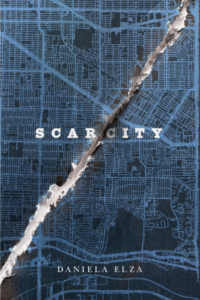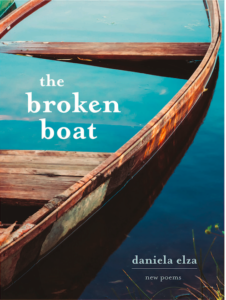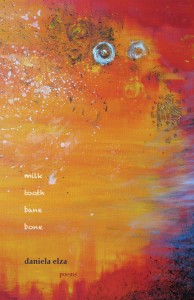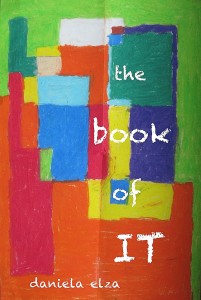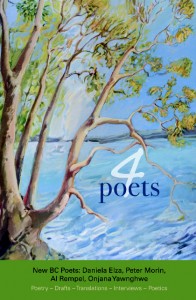what’s lived, what’s written
Posted by Daniela Elza on Jun 29 2010
I often think about the writer and the writing. How different they are? How connected? Keep attempting to contemplate, to draw the web of this complex inter-relationship. Trying as hard as I can not to simplify it. The rational mind always wants things clear cut and comfortingly black and white. Yet, what intrigues it most is the intricately complex, the slight change in curve, shape, hue.
Recently, I happened upon a couple of quotes Dorothee Lang put up on virtualnotes. Namely:
“I think nothing is more annihilating to a writer than to be celebrated for what he or she is and not for what he or she wrote.” – Alexander Chee
“We are what we write. It is not a political description, but rather a psychological marker of what preoccupies us. Yes, our work ought to be celebrated for its intrinsic beauty /relevance, but the particularity of its consequence is rooted fimly in our individual psyche.” – Ru Freeman
This trajectory of thought took me straight to a place that is still unresolved in my mind.
I really enjoyed the book The Ignorant School Master: Five Lessons in Intellectual Emancipation by Jacques Ranciére. Then I went to hear a lecture by him at UBC and the first “question” after the lecture caused a stir and tention in the room. There was a question in there trying to come out, yet not fully formed, but if you wanted and tried you could hear it: asking why philosophers wait 30 years to write about something? Why not wirte about cuuent issues that are happening today? I had no trouble getting the question. Yet people started turning around, some giving meaningful looks, others yelling: what’s your question?
No idea why the big amphitheater lecture hall collectively raised its bristles. Perhaps because the person asking the question was of a certain colour? Perhaps because he might have been Middle Eastern. Ranciére paced back and forth on the stage with his left and right hand taking turns nervously scratching his temples. Perhaps he was experiencing his own isolation horror in his language barrier? Perhaps he was not sure what was going on? The woman who was supposed to MC and help him out on stage did not seem to be helping him, more preoccupied with this young man trying to import the urgency of his question. The room arched its back, and the tension built up and the young man’s voice got tenser, even accusatory, until he got walked out of the room.
I was left with a disappointment, which grew later into bitterness. In that moment, Ranciere, himself displaced from his own country, could not cross the gap, be curious enough to get what the student was asking. What might have been more readily understood by him was the tone of voice, the aggravation. And that maybe was enough to dismiss the comment/question. The whole room with its impatience might have been his compass. Why the audience responded the way it did, was beyond me. This was a university audience, presumably sufficiently educated, having developed a patience for such things.
The question remained tossed, but not received. In fact, completely rejected. Once the student was walked out of the room, Ranciére said something to the effect: Now I can take questions and the room settled into its collective amnesia, monotone, and drone.
A short while after, I left. I left with my puzzle. Could this man have written The Ignorant School Master? Where a teacher manages to teach his students even though he does not speak their language? To this day I am divided and have not settled my dilemma around this incident. It also made me feel different toward Ranciére. No longer sure how I feel about the work.
InThe Poetics of Reverie Bachelard says: “It is so difficult to link the life to the work.” We can appreciate a poets poems even if he lived his life poorly and was unhappy. “Did not the work dominate his life; is not the work a pardon for the man who has lived badly?”
He goes on to say how psychological literary criticism tries to make a man out of the poet.
“But in the great poetical successes the problem remains intact: how can a man become a poet inspite of life?”
Well, there. I cannot imagine writing and being fascinated with what I am not aspiring to. Perhaps it is easier to write it than to become it? The act of writing is an act of transformation. But perhaps only if we let it? Perhaps if we are deeply connected to it.
Ultimately, the power is in the hands of the reader. The reader will make of it what they need to. Not what the writer intended.
And sometimes the two meet.
